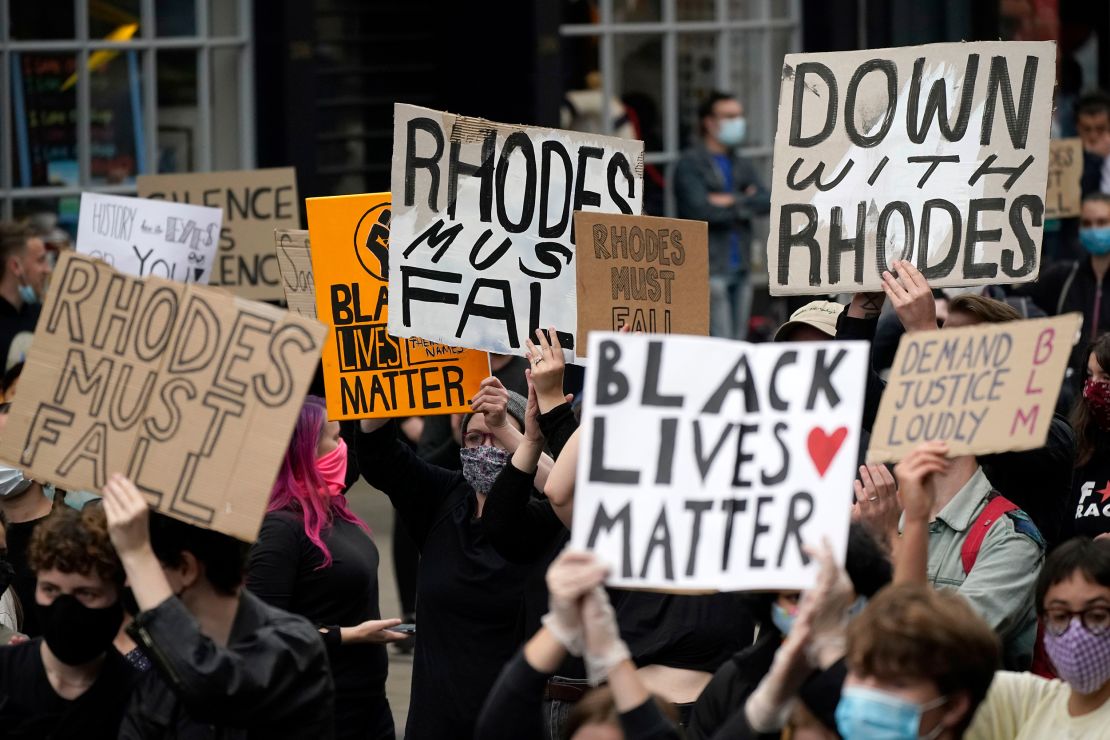Hundreds of protesters in Oxford took to the streets outside the famed university’s Oriel College on Tuesday, to demand the removal of a statue of Cecil Rhodes.
The long-running campaign to remove the statue has been reinvigorated after the recent Black Lives Matter protests in the US following the death of George Floyd.
Anti-racism protesters in the UK previously pulled down the statue of slave trader Edward Colston in the English port city of Bristol on Monday.
Members of the Oxford crowd on Tuesday took a knee, put their fists in the air and kept silent for 8 minutes and 46 seconds, the amount of time Minneapolis police officer Derek Chauvin held his knee on Floyd’s neck.

Why are people protesting about statues of Cecil Rhodes? Who was he?
Cecil Rhodes was one of the leading figures in British imperialism at the end of the 19th Century, pushing the empire to seize control over vast areas of southern Africa, first as a businessman and later as prime minister of Cape Colony in what is now South Africa.
Why did he do that?
Rhodes had both financial and political reasons. He co-founded the De Beers diamond company, which sought to control ever greater territory for its diamond mining. In Rhodes’ lifetime, the company controlled about 90% of the world’s diamond mines.
But he also held a deep-seated belief that the British should run things because they were simply better than other people. As he famously put it: “You are an Englishman, and have subsequently drawn the greatest prize in the lottery of life.” (The quote is often summarized as “to be born an Englishman is to win first prize in the lottery of life.”)
What territory are we talking about here?
Two colonies that were named after him – Northern and Southern Rhodesia. They’re now the countries of Zimbabwe and Zambia.
Why is there a statue of him at Oxford University?
Born in England, Rhodes attended Oriel College, Oxford, and left money to the college in his will. There also used to be a statue of him in Cape Town, South Africa, but it was torn down in 2015 because of Rhodes’ association with white rule. The South African #RhodesMustFall movement inspired similar protests at Oxford, but the statue there remains.
Did Rhodes do anything good?
He established the Rhodes Scholarships in his will to enable young people from around the world to study at Oxford. Famous Rhodes scholars include former President Bill Clinton, former UN Ambassador Susan Rice, former Louisiana Gov. Bobby Jindal, TV host Rachel Maddow and singer/actor Kris Kristofferson.
